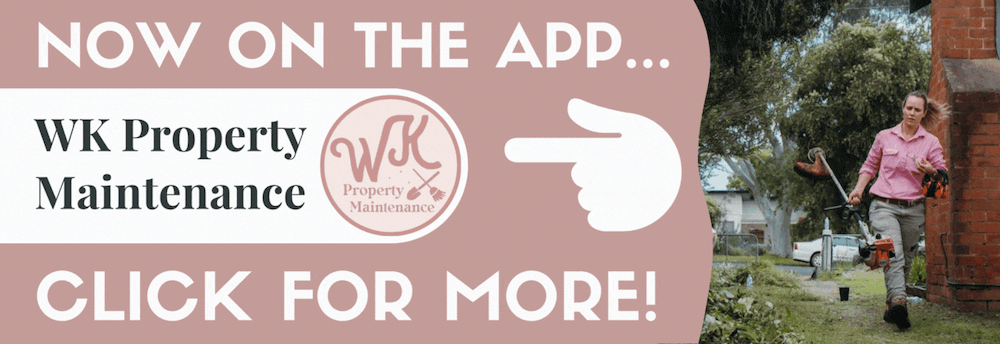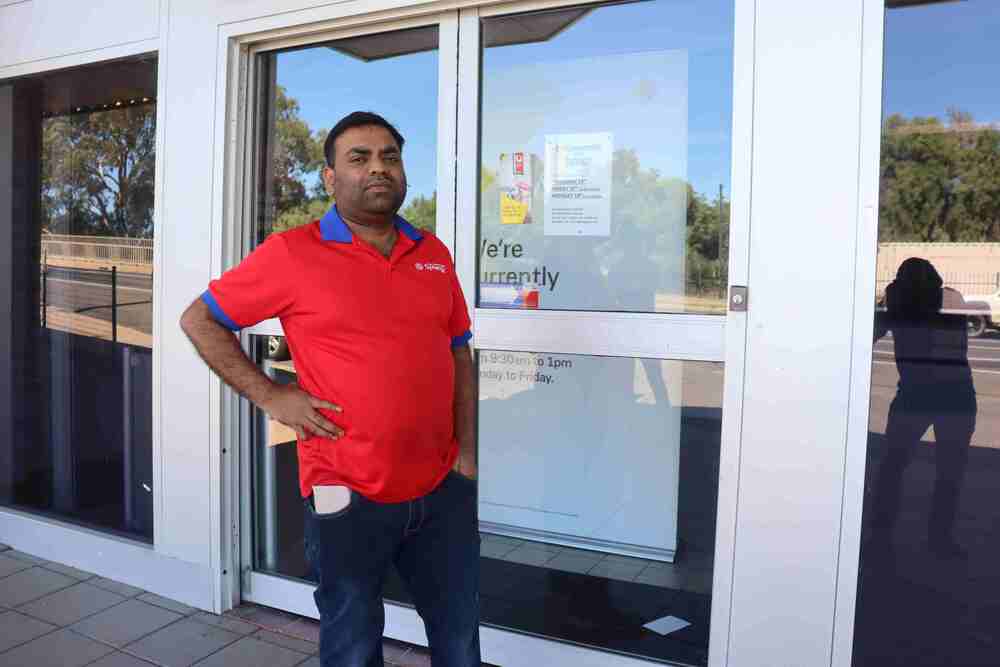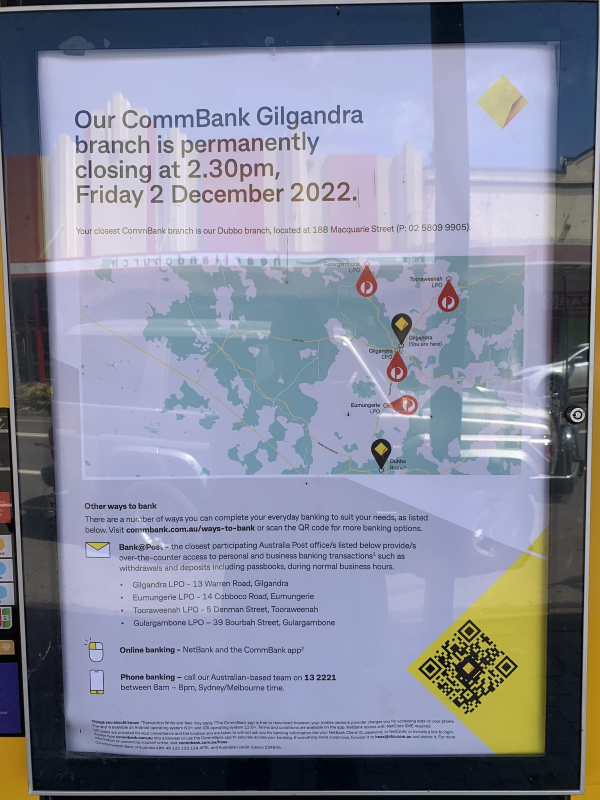Bank branch closures disabling regional communities
Lucy Kirk
28 March 2023, 8:20 PM
 Federal Member for Parkes Mark Coulton and Committee Chair, Senator for Queensland Matthew Canavan are pleading regional communities to have a say in the Senate Inquiry into regional bank branch closures. Submissions close 31 March, 2023.
Federal Member for Parkes Mark Coulton and Committee Chair, Senator for Queensland Matthew Canavan are pleading regional communities to have a say in the Senate Inquiry into regional bank branch closures. Submissions close 31 March, 2023.As regional bank branches slowly begin to shut their doors on residents and businesses, regional communities are being left stranded without equal access to financial services.
A new Senate inquiry into regional and rural branch closures was referred to the Rural and Regional Affairs Committee last month, and is due to finish in December 2023, however, public submissions are closing in three days.
The inquiry was established following 92 bank branches across the country being closed or slated for closure since September, and the committee called on all banks to halt branch closures until the completion of the inquiry as a sign of good faith.
Chair of the Committee Senator Matthew Canavan said that he is speaking with communities that are being impacted by bank closures across regional Australia.

“We need to be finding solutions that enable the ongoing ability for these communities to access banking services without the undue need to travel multiple hours, especially when businesses and community groups need to have access to bank cash,” said Senator Canavan.
“All four of the big banks have signed up to support the referendum on The Voice but we’re seeing them close branches in communities with a high proportion of Indigenous people. If they really wanted to make sure they were having a positive impact they would be working with these communities to ensure they don’t lose an essential service, and that’s what we’re wanting to achieve with this inquiry,” he said.
Most recently in the Western Plains region, Gilgandra’s Commonwealth Bank of Australia (CBA) branch closed, with Narromine’s National Australia Bank (NAB) also gone, and in many other towns including Condobolin and Coonamble, local branch hours have been significantly reduced.
In Coonamble and Walgett CBA staff are shared between branches and stretched so thin that this week they are only opening every second morning. At the same time, the CBA's Automatic Teller Machine (ATM) in Coonamble - the only free ATM in the shire - has not been operating for days.

An unhappy business owner outside the 'closed without notice' Coonamble CBA branch in November 2022. IMAGE: Coonamble Times
“Banking is not just about commerce in regional communities but provides an essential service to the most vulnerable in the community,” said Federal Member for Parkes Mark Coulton.
“These decisions will disadvantage the elderly, people with disability and Aboriginal people who require access to in-person banking because they lack digital literacy or have no means to access the appropriate technologies required for online or telephone banking,” he said.
“This may lead to more people being vulnerable to online banking scams; and I am equally concerned about the personal safety of people who may feel forced to take out and carry around larger amounts of cash.”
Lachlan Shire Mayor, John Medcalf, was particularly concerned about the impacts bank closures would have on his local economy.
“When people are forced to leave town to do their banking they also buy other goods and services which reduces the money circulating in our towns and villages. It has a significant impact on our local economy and puts our businesses at risk. Not to mention the effect on industry productivity as businesses and workers have to make time to travel further to access banking services,” said Mayor Medcalf.
Krissie Jones, NAB Executive Retail at the Senate Rural and Regional Affairs and Transport References Committee hearing in Sale, Victoria, on 2 March 2023, spoke to the reasons why banks can no longer afford to hold on to local branches.
“Banking, like so many other industries, is undergoing a significant transformation driven by rapid technological advancement and changing customer behaviour,” said Ms Jones.
“More of our customers are choosing to manage their finances digitally, preferring the convenience and accessibility of telephone, online and mobile banking. Today, more than 93% of our customer interactions occur digitally,” she said.

Rural customers are fed up with frequently closed doors in branches all over the west. IMAGE: Coonamble Times
Ms Jones did acknowledge the unique challenges facing rural and regional communities, who have higher populations of Indigenous, low-socioeconomic, elderly and disabled people who still require some face to face banking options.
“When a closure takes place, our local team works closely with customers up until the closure, to ensure they are aware of the banking options that will continue to be available,” she said.
“This can include continuing to bank in person at the local Australia Post as part of our 10 year partnership, using telephone or online banking, or having one of our business, agribusiness or mobile bankers visit at a time and location that suits them,” she said.
One of the recommendations that came from the Regional Banking Taskforce Report that was published in September last year was that banks should implement branch closure impact assessments prior to making a decision to close as a sign of good faith and so as not to leave vulnerable people without access to a financial service.
It stated that banks should establish a process for conducting and publishing regional branch closure impact assessments by mid-2023, and that the assessments should provide clear reasons for the closure and the engagement that will occur with customers, local government and other stakeholders following the announcement of the closure.

Advising customers of an imminent closure is one thing - local residents, businesses and councils argue that banking is an essential service in small towns.
While the Commonwealth Bank (CBA) have halted any branch closures until the findings from the Senate Inquiry are released, ANZ, Westpac and NAB have proceeded with branch closures that were already in motion, before promising to work constructively with the Rural and Regional Affairs Committee to find innovative solutions.
Lachlan Shire Mayor, John Medcalf, is urgently encouraging anyone in his local area, in particular, to send in a submission to the committee.
“The true measure of any society can be found in how it treats its most vulnerable members,” said Mayor Medcalf. “I hope our community will have a say.”
Submissions are due on 31 March 2023 and can be made by visiting the Inquiry's site.
The inquiry is expected to report back to the Senate by 1 December 2023.



